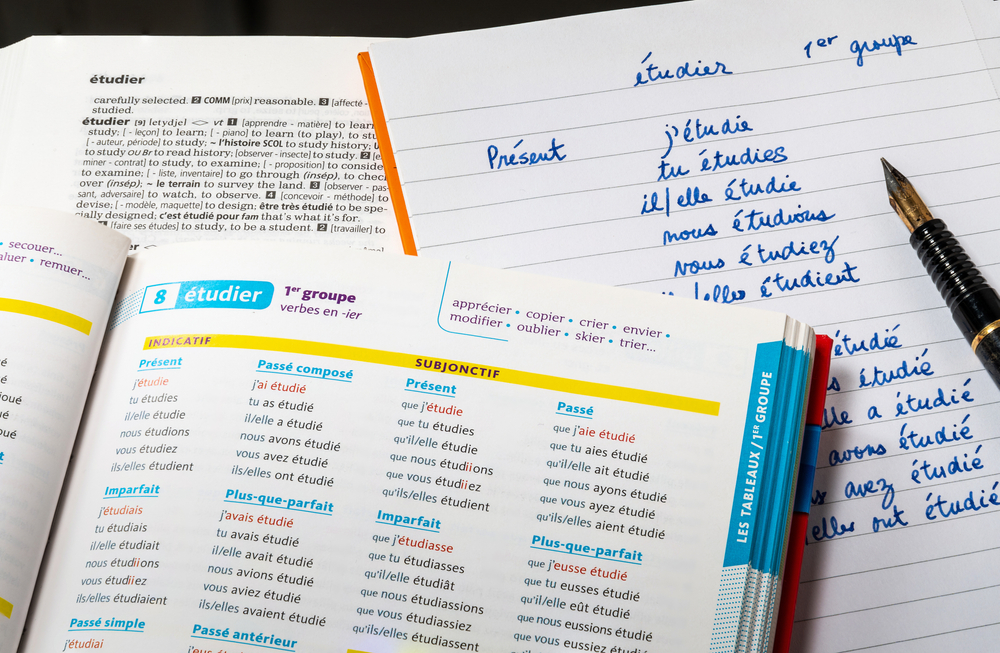


As the number of students opting to study a language continues to fall, Guernsey’s Head of Education Improvement says making languages compulsory at GCSE "is not the solution".
Clare Sealy acknowledged that uptake of languages "has been falling for some years" from Year 10, which is when languages become optional. But she said this reflects the same trend seen nationally.
"This decline is not confined to the Bailiwick. It is also seen in the four nations of the UK. Research indicates that the reasons behind this decline are complex and not simply because children can choose to drop languages," said Ms Sealy.
"While we would like more learners to choose to study languages, making them compulsory is not the solution. Language learning needs to be attractive."

Pictured: In States' schools, language lessons are compulsory up to year nine and optional after that.
Ms Sealy said that languages are often "perceived as being too hard".
"Many studies suggest that learners become demotivated when learning languages because they do not experience success," she said.
"There is lively and passionate debate within the languages teaching community as new research-informed approaches are explored which enable learners to be successful and to feel successful."
Anna Lisa Detassis, Managing Director of Accent, a local languages academy, has noticed the decline in language students.
"We have worked with many language specialists over the years and also help in schools across the islands and we know that there has been a drop in students taking languages at GCSEs," she said.

Pictured: Head of Education Improvement, Clare Sealy, said languages are "perceived as being too hard".
"In previous years, most secondary schools on the island had a foreign language as compulsory. But, since last year, none of the schools require students to take a language at GCSE level," said Ms Detassis.
“Although it was never compulsory by law, clearly there is now less importance given to foreign languages as they can be abandoned in year 10. Therefore, there is also a smaller pool of students who take languages at A level."
Ms Detassis said that studying a language could make students more employable.
"Graduates with language degrees are sought after by recruiters but, for whatever reason, our society nowadays is determined to ignore this fact," she said.
"Surely we need to change this stereotyping of language degrees being thought of as useless.
"Guernsey has the autonomy to decide what language learning strategies are best for its children and has an opportunity to offer language learning provisions that not only equal but surpass that offered in the UK, both in primary and secondary schools."

Pictured: Accent Managing Director, Anna Lisa Detassis, said a second language can secure employment opportunities and business deals.
Ms Sealy said that languages are a "valued part of the Bailiwick curriculum".
"In States’ primary schools, children must study French, and the subject remains compulsory in secondary schools to the end of year nine," she said.
"There are also opportunities to learn a further language, though at the moment these vary between the four secondary schools. As we move to having three secondary schools, this variation in subject offer will be addressed."
Ms Detassis agreed that it was important for younger children to study a language.
"At Accent, we have always championed learning from a young age and will continue to do so as we believe learning a second language brings immense benefits to a child's development," she said.
"The earlier one starts learning a second language, the easier it is for students to make rapid progress at secondary school and beyond."

Pictured: Clare Sealy said that "new research-informed approaches" are being introduced to help language learners feel successful.
Ms Detassis said that studying a language has several benefits, including accessing careers in global markets and understanding people and cultures.
"Beyond cultural awareness, foreign language learners tend to evidence more flexible interpersonal skills, creativity and adaptability than those who don’t learn other languages," she said.
"They [language students] possess strong verbal and writing aptitude, which is necessary for communicating ideas. These skills make for better leaders in business, science, politics and a host of other fields, which are developing in an increasingly global context, requiring more than narrow specialisation."
Ms Sealy said that new approaches were being implemented to encourage students to take a language.
"These new approaches are being introduced by our schools and are having a very positive impact. For example, the number of learners opting to take French at GCSE at Les Beaucamps High School has quadrupled since new approaches were introduced," she said.
Comments
Comments on this story express the views of the commentator only, not Bailiwick Publishing. We are unable to guarantee the accuracy of any of those comments.